|
Can you believe we are already in the fifth week of Lent? Personally, this year’s Lenten season has flown by for me. While I have not always held fast to the Lenten observances I chose for myself, I can already see the fruits of the changes I have been able to maintain. This year for Lent, I have begun working my way through the Bible using a program which breaks the Scriptures into easily-digestible daily segments from both the Old and New Testaments. Most of what I’ve read from the Old Testament so far has been very familiar to me—stories from creation to the great flood and Abraham and his successors. But what has struck me, as I’ve slowly progressed through the books of Genesis and Exodus, is the lack of trust that has plagued the human race since its creation. Reading these Bible passages has often left me pondering why mankind struggles so much to trust God. Adam and Eve fell for the serpent’s lies about the forbidden fruit instead of trusting that God knew what was good and appropriate for them; Abraham tried to jumpstart his promised line of innumerable progeny by having a child with his wife’s servant because his wife was supposedly incapable of bearing any children. Today’s first reading, from the Book of Numbers, continues these themes of distrust. “With their patience worn out by the journey,” the Israelites complain that they were rescued from slavery only to be left to die in the miserable desert, and that even the food the Lord has provided them is disgusting and wretched. I have found these particular stories from the Old Testament striking because they ring true for my own life; when I find myself in a difficult situation over which I have no control, I don’t always maintain my trust in God. I feel helpless because there is nothing I can do to change things, or I cannot fathom why things are unraveling in the way that they are. And, like hundreds of generations of the human race before me, I turn to the world first for answers instead of coming immediately to God. I usually end up complaining, and often times I prefer to question why He is treating me this way and do not trust that there is some good to come out of it that I cannot yet, and may not ever, see. In fact, I think this may be the heart of mankind’s trust issues: one of the hardest things for us to do is to have faith in God when we cannot see the whole picture, or do not understand what is going on, or cannot understand what God could possibly mean by calling us in the way that He does. But we do not need to see the whole picture in order to be faithful followers of Christ. We do not need to control the situation in order to get what God promised us. We can use our times of suffering, or times of feeling excluded from God’s plan, to bring ourselves closer to God. Instead of asking God why He has not done more for us, like the Israelites did in the desert, we can ask Him to show us what good our suffering could bring. And instead of trying to put ourselves on a more equal footing with God, like Adam and Eve or Abraham and Sarah did, we can ask God how best we can serve Him. Today, as we continue to navigate the incredibly difficult situations around us caused by the coronavirus, let us place our trust in God once more and turn to him in our time of need. I pray that this may be a fruitful time of growth in your relationship with God and that we may emerge from this time stronger in our faith, hope, and love. For more resources to accompany you during this time, please visit our Coronavirus Resource page.
0 Comments
Spiritual accompaniment has been discussed greatly today within the Church and is an important theme of Pope Francis’ papacy. While accompaniment is manifested throughout the Old Testament and in Christ’s ministry, it is important for the Church to consider how best to implement it in modern times. What does accompaniment look like today? How do we best accompany others along their spiritual journey in deepening their relationship with Jesus Christ? The Art of Accompaniment: Theological, Spiritual, and Practical Elements of Building a More Relational Church, a Catholic Apostolate Center resource developed by Colleen Campbell and Thomas Carani, assists in the growth of true accompaniment within the Church today. Below are ten quotes from The Art of Accompaniment that summarize some of the major points of this important resource in order to introduce you to accompaniment and its role for Christians today. 1. “Since the creation of human beings, God has communicated his love through a relationship with humanity…The Old and New Testament reveal the Trinitarian God to be a God who accompanies.” God models accompaniment for humanity in his self-revelation and relationship with his people throughout salvation history. After the Fall, God revealed himself in his various relationships with important figures such as Abraham and Moses in the Old Testament, culminating in the sending of his Son, Jesus Christ, for the salvation of the world. God Himself is the first model of accompaniment. We look to His example in order to understand and implement accompaniment in the Church today. 2. “Spiritual accompaniment is the apostolate of intentional relationship that is oriented toward a definitive direction of growth in holiness and transformation in the Person of Christ.” Colleen and Tom define accompaniment succinctly: spiritual accompaniment does not happen by accident, but is the result of an intentional decision made by two people. The goal of spiritual accompaniment is a deepening in one’s personal relationship with Jesus Christ and in personal holiness that transforms both the mentor and the person being accompanied, as well as those they encounter. 3. “To remain committed to this deliberate choice of discipleship, a mentor is an active participant in their own spiritual formation, deliberately choosing the path of discipleship as their everyday way of life.” A mentor never ceases to pursue holiness, personal development, and spiritual formation. These are life-long endeavors to which the mentor and the person being accompanied dedicate themselves. 4. “Listening is a crucial practice of the mentor because it not only creates space for openness between mentor and the one accompanied, but also makes room for an awareness of the presence and action of God.” An important part of the spiritual life that Pope Francis has emphasized is the art of listening. We must be silent in order to hear the voice of God and the promptings of the Holy Spirit. The ability to listen well is also incredibly important to the art of accompaniment. When a mentor is adept in the art of listening, he or she affirms the dignity of the person being accompanied and humbly leaves room for the voice of God to be heard and acknowledged. 5. “Discernment is a supernatural gift of the Holy Spirit and useful in coming to identify the movements and actions of God in daily life.” Both the mentor and person being accompanied must grow in their ability to discern the work of God and the presence of the Holy Spirit. While there are many resources within the Church that help form a person in their understanding of discernment, it is ultimately a gift of the Holy Spirit. By praying for clarity, understanding, and wisdom, and by approaching the accompanying relationship in a posture of humility, both the mentor and person being accompanied create an environment in which the actions of God are received and acted upon. Ongoing discernment is crucial to spiritual accompaniment. 6. "Mentors are formed by the community as a result of encountering diverse groups of people, listening to different perspectives, seeking guidance from others, and worshipping and seeking Christ amongst the family of the children of God." The spiritual life does not and cannot exist in a vacuum; the same is true with accompaniment. Both the mentor and person being accompanied are formed by their parishes and communities. The beauty of our relational existence is that our communities of faith are comprised of all sorts of people. This diversity within our parishes enriches each member of the Body of Christ and deepens compassion, understanding, and a spirit of inclusion that helps the mentor better accompany another person. 7. "As they share the journey of the Christian life with the one accompanied, the mentor evangelizes the accompanied by fostering an encounter with Christ in their daily life, drawing connections between the Gospel message and their everyday experiences, and encouraging them toward ongoing conversion to Christ through the relationship of accompaniment." An important aspect of accompaniment is that it is a mutual journey towards Christ. Accompaniment does not happen only in Church settings and does not only address topics of faith—it encompasses an entire life. Our faith life also does not occur in a vacuum, but should impact and inform every aspect of our existence. As a result, accompaniment helps both the mentor and the one being accompanied to draw connections between the Gospel and everyday life. 8. "Those accompanied are open to formation and display their willingness to be formed by authentically seeking holiness, collaborating with their mentor, remaining humble in the midst of difficulty, and giving thought and prayer to challenges or new ideas…they must seek faith formation through study, catechetical ministry through parishes or Catholic institutions, and their own personal learning." Humility is a crucial component of an accompanying relationship—especially for the one being accompanied. The person being accompanied acknowledges the need to walk alongside a mentor and to be formed by them in order to grow in holiness and a relationship with Christ. Therefore, the mentor is an authority figure that respectfully and lovingly informs and collaborates with the one being accompanied, as well as with the Holy Spirit. Furthermore, the one accompanied also seeks personal formation in other trusted places. 9. "In the relationship of accompaniment, the marginalized are provided a space in which they can come to deeply know the love of Jesus Christ through friendship, guidance, and authenticity with a mentor." No one is exempt from an accompanying relationship—it is an important part of the spiritual life that all are invited to. A relationship of accompaniment results in the greatest treasure on earth: friendship with and love of Jesus Christ. A mentor is more than an authority figure. He or she is a friend, helper, and guide who affirms a person’s dignity and walks alongside another to build up the Body of Christ. 10. "The inspiration and model for the apostolate of accompaniment is Mary…In Mary, the Church has a model and intercessor for the apostolate of accompaniment." We cannot have a vibrant and lasting life of faith and thriving relationship with Christ without looking to and having a relationship with His Mother, Mary. The Blessed Virgin Mary always leads us closer to her Son. By looking to her and seeking her guidance and intercession, we can be sure that our efforts to accompany and be accompanied will bear much fruit. To learn more about The Art of Accompaniment and order your copy today, please click here. This year seems like a year of baby announcements for me! Just as I have prepared for the parade of invitations and happy save-the-dates for graduations and weddings, I’ve been preparing in my own way for the arrivals of friends’, parishioners’, and family’s little ones. With the arrival of spring, so too comes the arrival of brand new family members. At Mass recently, the choir began singing “What a Beautiful Name” during the Eucharistic procession. I couldn’t help but picture the new names and faces that would fill stories from now on. With each birth announcement came the first, middle, and last name along with weight, length, and time of birth. These surely were moments that changed so many lives forever! I could hear the parents and families singing this song for the new baby boy or girl. As I pictured the new names and faces, I prayed using the name that changed humanity–Jesus. Each verse of “What a Beautiful Name” builds upon the last. Jesus’ name is beautiful, wonderful, powerful. The melody and harmony invite you into a transformative reality. Jesus–who is the King, Savior, Son of God, Prince of Peace–knows your name and is present to you in the Eucharist (CCC 432). You didn't want heaven without us So Jesus, You brought heaven down Throughout the Old and New Testaments, we learn about the significance of names and the process of naming. Some names change as different Biblical figures embrace a new mission or vocation: like Abram, Jacob, and Simon. Listening to this song led me to reflect on those figures in Scripture and on Jesus’ Paschal Mystery in light of the birth announcements. His is the only name through which humanity is saved—the name “above every name.” I hope to witness the love of Christ in these babies and in their unique names that are so meaningful. These names are written on the palms of His hand and show God’s unconditional love for His people and the love for His Son, Jesus. Yours is the Kingdom, Yours is the glory Yours is the Name, above all names This spring and Easter Season calls me to slow down and pray with the name of Jesus. I pray in thanksgiving for new life and new names. I pray for the hearts of these little ones and hope that they come to know and witness the beauty, wonder, and power in Jesus’ name. Question for Reflection: Try praying the simple prayer of Jesus’ name. Think of the history and significance of names in your life, the lives of family members, the saints, and scripture. How have each of these names influenced your faith? This weekend is the feast of St. Patrick—one of the most popular saints in the Archdiocese of Washington where I grew up and arguably in the entire United States. But two days later on March 19, coming much more quietly and with far less fanfare in American culture, slips in the Solemnity of St. Joseph.
It is easy to lose the Solemnity of St. Joseph in the rigors of Lenten observances or because it comes on the heels of the day-long party that seems to happen every year on St. Patrick’s Day. Perhaps we often overlook this feast because we know so little about who St. Joseph was and what his life was like. Nevertheless, St. Joseph remains an incredibly important figure, especially for parents. Joseph is mentioned only a few times in the New Testament. We know from the Gospels that Joseph was a law-abiding and righteous man, and that he obeyed God’s will—especially when it was revealed to him directly by an angel. After these few mentions in the infancy narratives of Jesus, St. Joseph gently fades into the background and then disappears altogether from the Gospels. But the Church in her wisdom has made St. Joseph’s importance clear for those who are paying attention: he is mentioned in all four Eucharistic Prayers at Mass, as well as in the Divine Praises during Benediction at the end of Eucharistic adoration. But what makes St. Joseph so special? From what we can glean from the Gospels, St. Joseph was an ordinary man of deep faith who was called to become the foster-father of Christ. He became the earthly guardian of the Messiah, responsible for his upbringing and tasked with protecting him in his early life. St. Joseph’s commitment to his vocation as the husband of Mary and the foster father of Christ was so strong that upon being warned about the murderous intentions of King Herod, he fled immediately—in the middle of the night!—to Egypt. He did whatever it took, even leaving his entire life behind him, in order to keep his family safe. The little we see of him in the New Testament shows us a devout man who always trusted in God and took care of his family. St. Joseph, as the third member of the Holy Family, is the member who is the most like us—especially those of us who are parents. He was not born sinless, nor was he divine. He was a carpenter, a man of humble station who probably felt as though he had a monumentally important task thrust upon him. I think St. Joseph’s role in Christ’s life beautifully displays the role of a Christian parent in their child’s life. Parents are ordinary people who are tasked with the care and raising of new life. Like Joseph, we do not own our children or have sole claim over them; they are their own people, entrusted to our care and guidance until they grow old enough to do God’s will without our assistance. It is a difficult task, and at times overwhelming to ponder. And yet there is St. Joseph, who was tasked with raising the very Son of God. Joseph shows us that we do not need to be perfect in our roles, only willing to be guided by God as we place our trust in Him. Just as I strive to be like Mary in my vocation as a wife and mother, I pray that my husband will be like Joseph. St. Joseph is the ultimate husband and father, a faithful man of quiet strength, protector of Mary’s virginity, and guide of Christ’s earthly childhood. Above all, St. Joseph shows us the beauty of a life lived in obedience to God’s will. Questions for Reflection: How can you grow closer to St. Joseph throughout this Lenten season? What can you learn from St. Joseph’s example of obedience and trust? On July 25th, we celebrate the feast day of St. James the Apostle. St. James and his brother John were the sons of Zebedee. Jesus referred to these brothers as the “Sons of Thunder,” most likely due to their penchant for rash, emotional reactions and decisions. St. James teaches us the importance of humility and of promptly responding to God’s call, regardless of the securities we may leave behind in doing so. He was the first apostle to die a martyr’s death. We can look to his zeal for following Christ and his courage in spreading the faith in difficult times as examples for our own spiritual lives. We remember from Scripture that St. James and St. John initially asked Jesus if they could be placed on either side of him in his heavenly kingdom. Jesus uses this as an opportunity to reiterate to the disciples the importance of servant leadership. Jesus responds, “You know that those who are recognized as rulers over the Gentiles lord it over them, and their great ones make their authority over them felt. But it shall not be so among you. Rather, whoever wishes to be great among you will be your servant. Whoever wishes to be first among you will be the slave of all. For the Son of Man did not come to be served but to serve and to give his life as a ransom for many.” (Mark 10:42-45) From this lesson and Jesus’ previous parable of The Workers in the Vineyard (Matthew 20:1-16), we learn that the faithful are invited to receive the ultimate reward of eternal life with our Father in heaven. Jesus reminds us that we shouldn’t get caught up in the earthly understanding of rankings, but can all share in the glory of God in heaven. We also learn from this example with St. James and St. John that serving others is how we are called to love our neighbors. As 1 Corinthians 13:3 says, “If I give away everything I own, and if I hand my body over so that I may boast but do not have love, I gain nothing.” Jesus asks us to rely on him and not on others’ recognition of our sacrifices. In the New Testament, we often hear of St. James mentioned with Sts. John and Peter. These three disciples were privileged to be present at many of the significant moments in Jesus’ ministry on earth, including the Transfiguration and Agony in the Garden. The Holy Spirit’s presence within the apostles at Pentecost was a turning point for St. James and the other disciples because it showed them the true nature of Jesus’ mission and the meaning of his sacrifice on the cross (Benedict XVI, General Audience, June 21, 2006). From there, James and the other apostles went out to all the nations, preaching Jesus and his Gospel message. James’ life after Pentecost symbolizes the pilgrimage of the Christian journey (Benedict XVI, General Audience, June 21, 2006). His journey is one of the reasons he is considered the patron saint of pilgrim travelers and was recognized as a patron saint of World Youth Day 2016. In fact, the path to Santiago de Compostela, where St. James is buried in northwestern Spain, was one of the most traveled pilgrim routes during Medieval times after Rome and Jerusalem. Many people continue to make this pilgrimage today and to seek the guidance of St. James. We can call upon him to protect us during our journeys and to intercede for us for our personal conversions of heart before, during, and after our travels. We are called to follow Jesus as St. James did, knowing that even through life’s difficulties, we are walking along God’s path for us together with Christ. Through the example of St. James the Apostle, we see that following Jesus can have its difficulties through persecution and other hardships, but that our eternal reward is life in heaven with him. St. James’ story encourages us to leave our comparisons to others behind, fully trust in God, and show enthusiasm for Jesus Christ even when it is difficult. Questions for Reflection: Have you ever embarked on a pilgrimage? How did it deepen your spirituality? What are some ways we might be called to grow in our humility as we practice servant leadership in following Christ? While studying the New Testament during my sophomore year of Catholic high school, our teacher assigned us a project to make our own Stations of the Cross prayer book. We were to create a modern version of the Stations of the Cross by choosing pictures that reflect each station in contemporary times. I remember wanting to make the Stations of the Cross relevant to me as a high school student and looking for pictures of the Stations as they appear today.
I have always enjoyed history and for this project I found that the Via Dolorosa (Latin for “Way of Grief”) is the street found in the Old City of Jerusalem considered to be the route Jesus walked on the way to his crucifixion. I selected current images of where each station is believed to have taken place. The route is marked by nine of the fourteen Stations of the Cross with the last five Stations found inside the Church of the Holy Sepulcher. Reflecting on the modern photo of each station helped me to create a sort of pilgrimage, creating a visual image of the path Jesus walked to his death. Just as the Via Dolorosa gives us a glimpse of the visual path Jesus walked, we can relate to events and people of the past by associating with the current burdens of our world in order to promote deeper learning and engagement. Just as Jesus was wrongly accused and tortured, so are many around the world through persecution, violence, ignorance and injustice. When Jesus walked with the heavy cross on his shoulders, he carried the heavy burdening sins of others. We, too, can often find ourselves burdened with loads that we created for ourselves and others. We may fall under the heavy loads of work, family, relationships, financial issues or worry. We must learn to graciously accept assistance and thank those who help us like Jesus when he let Simon help him carry the burden of the cross. Likewise, we must remember to help those less fortunate or reaching out to others in unexpected ways. When our egos, dignity and faith have been bruised, we experience the same agony and hurt as Jesus when he fell to the ground a second time. We need to ask God to help us practice the gift of humility. How can we put these reflections into action this Lenten season? Taking just five minutes to pause and reflect on all that we are thankful for can help us understand how we are truly blessed. When I reflect on the Stations of the Cross, I ask God to help me love as I have been loved, to forgive as I have been forgiven and to be in continual awe of God’s marvelous works. During this Lenten journey, I think it’s helpful to find the things in our faith that remind us of God’s love and help us reflect. My pocket Stations of the Cross helps me to do just that. Dana Edwards is a recent graduate of the University of Florida. She currently resides in Tallahassee, Florida where she works as a Digital Strategist, and volunteers as a lector and with communication outreach at her local parish, Good Shepherd Catholic Church. 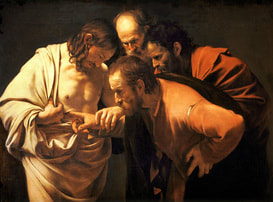 Poor Thomas! One remark by my namesake and he’s forever branded as “Doubting Thomas.” The Church doesn’t honor him each July 3rd for this, however, but for what is absolutely one of the most explicit Professions of Faith uttered in the New Testament: “My Lord and my God!” (see John 20: 24-29, c.f. Luke 7:1-10) In those five words, Thomas boldly expresses his revived belief in his resurrected Master and testifies to His divinity, ready to once again follow Christ and evangelize the world about Him. While this redeeming witness is indeed memorable, it is important to not lose sight of another of Thomas’ statements as recorded in John’s gospel, which shows us more about his personality and in turn, our own faith in Christ, “the assurance of things hoped for, the conviction of things not seen” (Hebrews 11:1). This other mention of Thomas occurs when Jesus decides to travel to the village of Bethany in Judea to raise Lazarus, thus coming dangerously close to Jerusalem (see John 10:22-39, c.f. Mark 10:32-34). Remembering how the Jews there had earlier tried to stone Jesus, the disciples must have felt apprehensive about undertaking such a risky journey (see John 11:8). Thomas, however, seeing Jesus’ determination, exhorts them saying, “Let us also go, that we may die with him” (John 11:16). Brave words for a doubter! Pope Benedict XVI even characterized Thomas’ sincere resolve to follow his Master as something which is “truly exemplary and offers us a valuable lesson: it reveals his total readiness to stand by Jesus, to the point of identifying his own destiny with that of Jesus and of desiring to share with him the supreme trial of death” (September 27, 2006 General Audience). This is the very definition of the Christian life! A life with Jesus is to be with Him through times of joy, peace, hope, success, and prosperity, as well as uncertainty, loss, sorrow, ridicule, and persecution. This is “no sugarplum” as Benedict describes it in Jesus of Nazareth (pg. 67), but without Christ what can one hope for to carry him or her through the trials of life? What would be the point in continuing on? In his final five words recorded in the Bible, Thomas redeems himself after doubting Christ by exclaiming “My Lord and my God!”. The wounds he touched confirm, undoubtedly, the Identity of Christ, the truth of His Message, and the authenticity of God’s infinite Love, not just for Thomas, but all believers! St. Augustine comments on this: Thomas “saw and touched the man, and acknowledged the God whom he neither saw nor touched; but by the means of what he saw and touched, he now put far away from him every doubt, and believed the other” (In ev. Jo. 121, 5). It is important to remember that Saint Thomas, like all the apostles, was personally chosen by Christ in spite of their weaknesses and lack of understanding. But Christ did not pick worthless men! Rather, their failings are a reminder that holiness is a gift from God and not a human creation, given to us, who have our own weaknesses, so God can transform them into the loving image of Christ and mature our faith. Jesus also permitted Thomas to doubt after the resurrection but did not abandon him in those doubts, instead allowing him to bear witness to the truth of the resurrection and thus verify the whole Christian message (see 1 Corinthians 15:14). Finally, we are called to not give in to our doubts regarding God, our dignity and worth, or even hard Church teachings no matter how unpopular they may seem! By looking to Saint Thomas as a model (and by praying to him for guidance), may we find comfort in our insecurities, hope in the future, and the encouragement to persevere through the difficulties of life on the way to our final rendezvous with our Lord and our God. Thomas Wong is an undergraduate student at The Catholic University of America and a member of the Catholic University Knights of Columbus.
"When you read God’s Word, you must constantly be saying to yourself, 'It is talking to me, and about me.'"
– Soren Kierkegaard This past fall, while on a retreat, I took a long walk with a friend. As we enjoyed the fresh air, we talked about our spiritual goals and areas for growth. For me, my area for growth seemed clear: I needed to refresh my relationship with the Bible and better use it for meditative purposes. Then my friend, who isn’t Catholic and has what my housemates call “a good Baptist Bible,” said something that made me both chuckle and cringe: “Yeah, I didn’t really know that Catholics don’t really use the Bible too much until I met so many this year.” Cue record-scratch sound. Cue cartoon eyeballs popping out of my head. Cue fumbling words. “Um well, that’s not really true…” I went on to say some jumble of words to correct her and explain the Catholic perspective. The truth is, the Scripture has a deep place in the heart of the Church. As a Catholic, I grew up hearing Old and New Testament alike each week at Mass, and as a (life-long) Catholic school girl, I not only heard and prayed on Bible stories but studied them. I am very grateful for my education; even if I can’t quote chapter and verse, I have a good understanding of the Bible’s history & context, as well as its eternal Truths. Yet clearly, my failure to embrace Scripture as a meditative and prayerful tool more closely looked to some (particularly non-Catholic Christians) as a general ignorance or dismissal of it. One thing you learn quickly in Bible-belt Kentucky is that people love and KNOW their Bibles. My friend’s comment made it clear: The Bible is important, and I needed to get my stuff together and meet God’s word more personally. So I did. I started a plan to read a little of the Old Testament, the Psalms, and the New Testament each day. Two months into this plan, I realize that while it is the story of God’s revelation to us, God’s people, it is also a revelation of myself, of who I am in relation to God. While for many, the Bible brings them close to know God, I find that reading it makes me stop and go, “Just who are you, God?! And how are you calling me?” (I imagine God hears this and chuckles, thinking It’s working!) But as a housemate reminded me, the Bible wasn’t made to be an easy read. I won’t ever “finish” it and be done, and God won’t give me a “Good Christian Award” just for reading it cover to cover. Though I already knew many of these stories and words well, they feel new to me. When I read it with a prayerful mind, and not an analytic, academic one, I see myself in the stories: my own failings, my own desires, my own questions. I won’t be able to quote chapter and verse at the end of this year; nor will I have a “good Baptist Bible” covered in ink and Post-It notes. But I’m learning to approach Scripture less like Martha (“Did I do it right? Am I on schedule?”) and more like Mary, simply by being with it. Then again, ask me how I feel in a few weeks when I get to Deuteronomy and Leviticus. Katherine Biegner recently graduated from Assumption College and is currently serving as a tutor and mentor in the Christian Appalachian Project in rural Kentucky. |
Details
Archives
July 2024
Categories
All
|
About |
Media |
© COPYRIGHT 2024 | ALL RIGHTS RESERVED

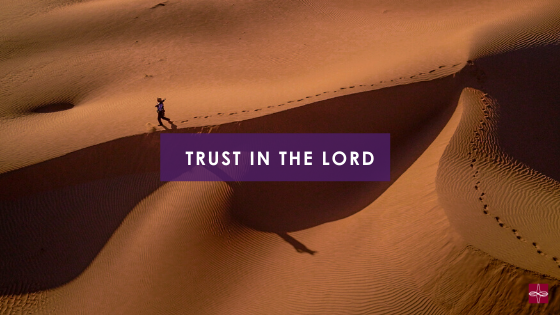





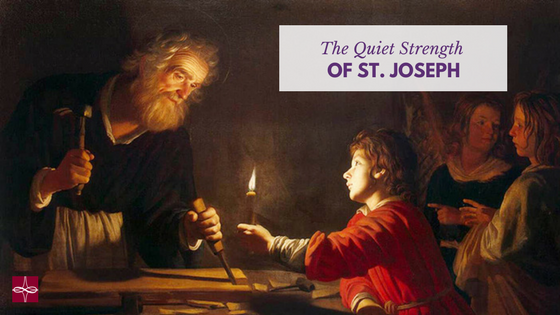

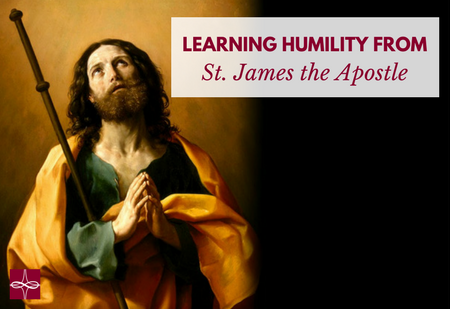

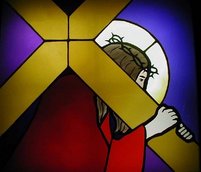
 RSS Feed
RSS Feed